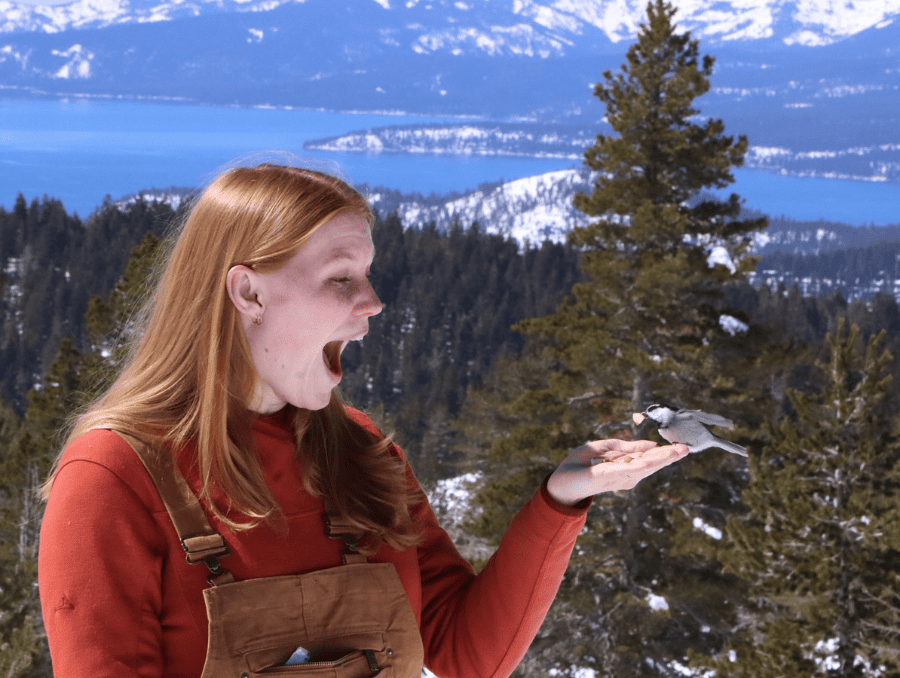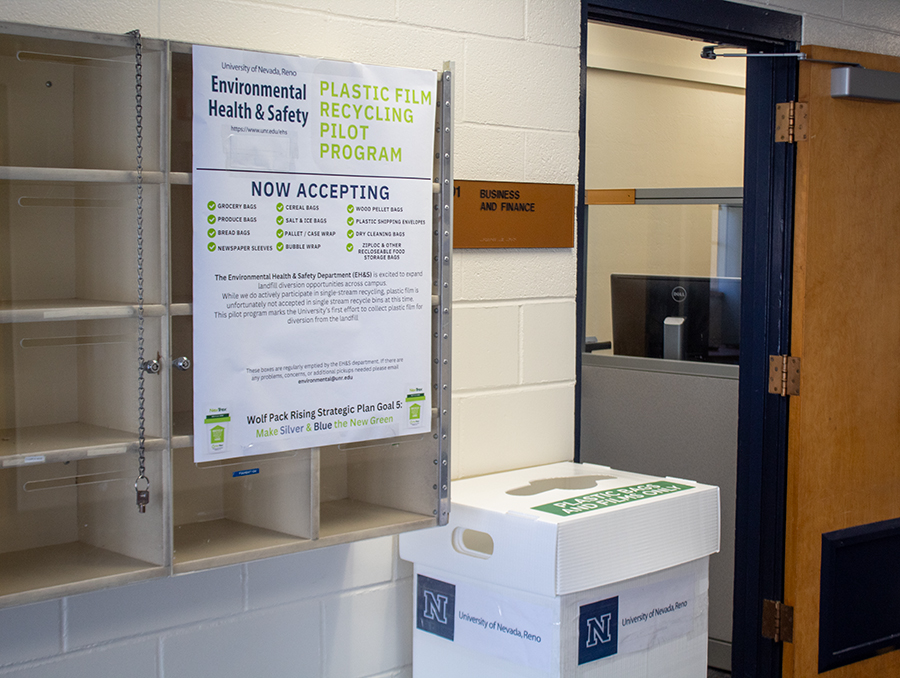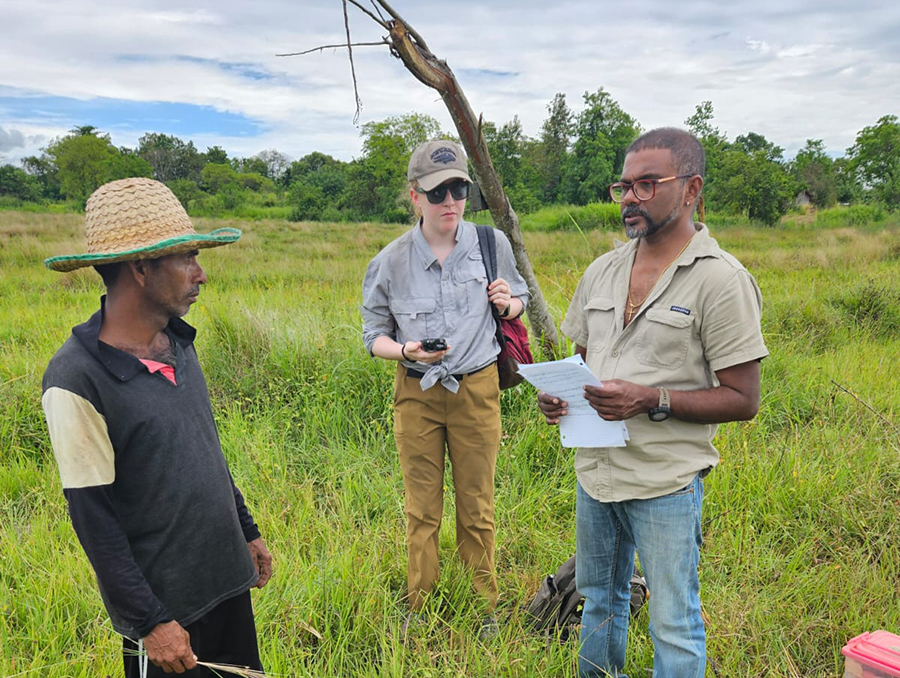Growing up in Zambia, Ai Ana Richmond spent her childhood climbing trees, running around outside, and poking at anything she thought was cool. With monkeys in her backyard and a family that encouraged questions and critical thinking, her love of biology started early. By the time she was 8, she already knew she wanted to earn a Ph.D. in animal behavior.
Now in her second year of the Ecology, Evolution, and Conservation Biology Ph.D. program at The University of Nevada, Reno, Richmond is turning those early passions into a lifelong career in science. This spring, she was named an Honorable Mention for the National Science Foundation’s Graduate Research Fellowship Program (NSF GRFP).
Richmond earned her undergraduate degree in zoology from Oregon State University. But her story, like her perspective, spans continents.
“I’ve grown up all over the world, so when people ask me where I’m from, it’s a difficult question to answer,” she said. “Living in different countries gave me an appreciation for how diverse people are, but also how similar we are at the same time. It’s been really cool to see that reflected in my work in ecology. We know that stronger ecosystems are more diverse, and I think the same is true in our work and our communities.”
While she had long planned to pursue graduate school, Richmond wasn’t sure how competitive she’d be coming out of college during COVID. A friend pointed her toward the lab of Vladimir Pravosudov, Ph.D., who is studying chickadee cognition. Richmond took a chance and applied.
“I didn’t have a master’s degree or work experience, so I didn’t expect much,” she said. “I told myself, let’s just see where this goes. And now I’m exactly where I need to be at this point in my life.”
In Pravosudov’s, Ph.D., lab, Richmond studies cognition and behavior in animals.
“What’s really exciting about cognition and behavior is that we do it entirely in the wild,” she said. “Most studies bring animals into labs, which aren’t always reflective of their real behavior. Being able to work in natural environments means we can get a clearer picture of what’s actually going on.”
For the NSF GRFP, Richmond proposed research that weaves together behavior, cognition and physiology.
“I’ve always been fascinated by how behavior is influenced by what’s happening inside the body. And more recently, I’ve been drawn to the gut microbiome, especially the gut-brain axis,” she said. “We know that most hormones that influence behavior are made in the gut, but in my chickadee species, we know almost nothing about their microbiome.”
She described the NSF GRFP application process as intense, time-consuming, and deeply rewarding.
Richmond worked closely with her advisor, lab members, friends, and family to revise her writing, strengthen her ideas, and make sure her proposal could be understood by readers from a variety of scientific backgrounds.
“You don’t know who your reviewers will be,” she said. “They might be a biologist, or they could be someone in geology or environmental science. So, I had to make sure I explained my ideas clearly while still showing depth and understanding of the literature.”
Even with support from her community, the process brought moments of self-doubt.
“The imposter syndrome is so real,” she said. “Coming into grad school without a master’s, with a lot of my training done during COVID, I felt like I didn’t have the background others did. I had to remind myself that I do belong in science, and my ideas are valuable. That was the hardest part, trusting my voice.”
In the process, Richmond learned not just about research and writing, but about how she works best.
“I realized how important it is to stay organized, especially when you’re reading a lot of literature,” she said. “Sometimes I’d have an idea, and I’d have to ask myself, ‘Did I come up with this? Or did I read this somewhere?’ Sorting that out was one of the trickiest parts in the early stages.”
Even though she didn’t receive the full fellowship, Richmond said the experience was invaluable.
“The first time I applied was during undergrad, and I didn’t get it. But even then, it helped me grow. I had something I was proud to show professors I was interviewing with. So, my advice to other students is to just go for it. It’s a lot of work, but it’s worth it no matter what happens.”















